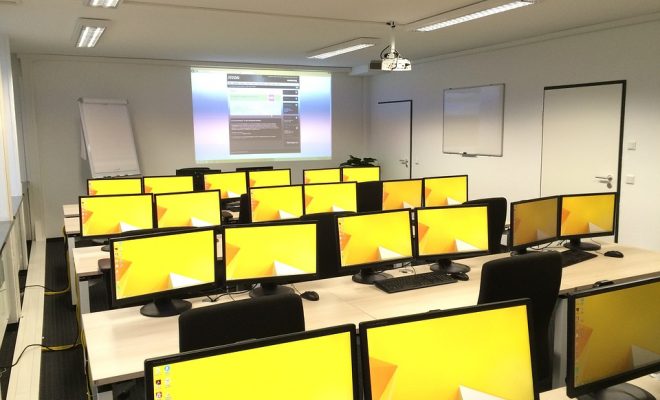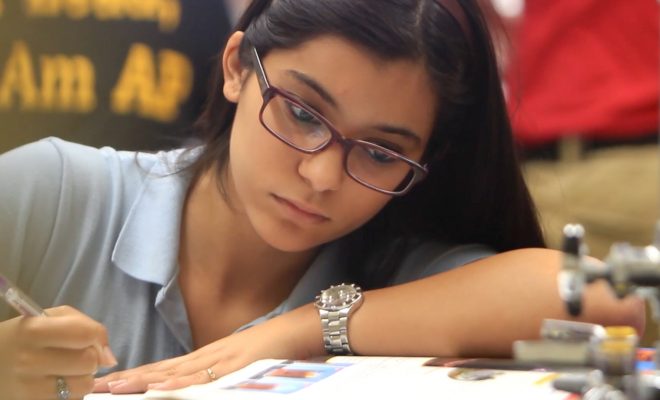For Aspiring Teachers Only: Are You a Specialist?

Many teachers have specialties that allow them to teach all grade levels, pre-K through grade 12. These specialties include (but are not limited to) art, music, and career and technical education. Some teachers concentrate on teaching students with special needs or teach students for whom English is not the primary language. Here are some specializations aspiring teachers may want to consider, if they haven’t already.
Art. A career as an art teacher typically requires a Bachelor of Fine Arts (BFA) or a BA in art with additional training in education. Art teachers teach students the basic principles of art and, very often, art history. Fortunately for art teachers, art is typically included in the curriculum of most elementary and secondary schools. Art teachers encourage creativity and teach techniques of various mediums including painting, drawing, and sculpture. They must have a wide range of knowledge about art, including art history, and an understanding of abstract concepts. Art teachers must be able to spot and develop talent and help all students discover their creativity.
Unfortunately, when schools are on a tight budget, art and music classes are often the first cut. But if you are an art teacher and you have difficulty finding employment in schools, you can also find a career as a trained artist, art gallery associate or owner, or as an art teacher in a community-based art centers.
Music. If you love music and children, consider a career as a music teacher. Individuals planning to become music teachers normally major in music with an emphasis in instrumental or choral music. Some universities offer a major that combines both. Music teachers teach both music appreciation and instrumental and choral performance. At the elementary and secondary school level, music teachers often direct the school chorus, choir, orchestra, or marching band. They instruct students in the technical aspects of music and evaluate performances. Sometimes music teachers take students on field trips to music concerts and may serve as sponsors when students engage in choral or instrumental music competition.
Career and technical education teachers. Career and technical education used to be called “vocational education.” These teachers may teach at the middle and/or high school levels. They often teach skills-based courses that are in high demand by employers who provide input to the curriculum and may offer internships in areas such as business, secretarial science, data processing, and practical nursing. Career and technical education teachers may work in public or private schools. According to the U.S. Department of Labor, roughly 16,000 teachers taught career and technical education at the middle school level in 2006, and 96,000 taught at the high school level. Typically, teachers in this subject area will use a hands-on approach to teach skills to prepare students for the real world of specific technical careers.
Physical education teachers. A physical education teacher’s ultimate goal is to introduce students to physical activities that will develop and promote good health and nutrition and will encourage a lifelong dedication to physical exercise. If you find sports irresistible and want to work with children, then becoming a physical education teacher might be a great career path for you. At the elementary level, physical education teachers work with students to introduce them to a wide range of physical activities. The intensity and variety of physical activity increase at the high school level. Physical education teachers may teach indoor and outdoor sports such as swimming, golf, baseball, dance, and aerobics. They also teach and demonstrate the use of equipment such as trampolines and weight-lifting equipment.
An important aspect of teaching physical education is imparting the notion of sportsmanship and fair play. In the past, physical education stressed the importance of competitive sports, such as running and competitive basketball. Students who did not perform well in such competitive activities often experienced a lowered sense of self-esteem. Today, physical education has changed and aims to offer physical exercise for students of all needs and abilities.
Teaching physical education isn’t all fun and games, though. Planning exercises and monitoring your students’ progress throughout the school year is a large part of the job, and not an easy one. Also, like every other elementary or secondary school teacher, you may have other duties such as monitoring students, attending parent–teacher conferences, and administrative work.
Special education teachers. Special education teachers work with children who have a variety of disabilities such as speech or language impairments, mental retardation, emotional disabilities, hearing or visual impairments, autism, and other health problems. Most special education teachers work with students at the pre-K, elementary, middle school, or high school levels. They typically use a modified general education curriculum to meet each child’s individual needs.
Special education teachers use an Individualized Education Program (IEP) for each student who has special needs. The IEP establishes personalized goals for each student and is customized to meet each student’s individual needs. Special education teachers are increasingly using assistive technology to aid learning for students with special needs. They may incorporate the use of computers with synthesized speech, interactive educational software programs, and audiotapes to address their students’ learning needs.
As schools are becoming more inclusive, special education teachers are more frequently working alongside general education teachers in the classroom. Special education teachers assist general educators in adapting curriculum materials and teaching techniques to successfully teach students with disabilities. They coordinate with teachers, teacher assistants, therapists, social workers, and other personnel to address students’ needs. Some special education teachers work in separate classrooms with a small group of students. Others may work in residential facilities or tutor students at home or in hospitals.
Some special education teachers choose to work with younger students, such as infants or toddlers, in the child’s home alongside parents. Special education teachers provide valuable information and skills to parents, children, and other educators.
Teachers of English Language Learners. The number of students in the United States without English as a first language is increasing. A study of the 94 largest school districts in America, for the 2005–2006 school year, revealed that 13% of all students in these districts were English Language Learners (ELLs). You may be surprised to know that most teachers of these students have not received specialized training to teach ELL students. In fact, only about 30% of teachers of ELL students have received training, and less than 3% of ELL teachers received a degree in English as a Second Language (ESL) or bilingual education (National Center for Education Statistics, 2006). Despite this obvious obstacle, many teachers believe they can still perform their job well without additional training, primarily due to their commitment to teach. Many school districts offer professional development to existing teachers so that teachers can better address the learning needs of ELL students. In fact, some states now offer an ESL endorsement (with completion of required course work) to teaching certificates. These changes are in recognition of the importance of ensuring that the educational needs of a growing ELL student population are addressed.
Do any of these specializations sound appealing to you as an aspiring educator? Why?






